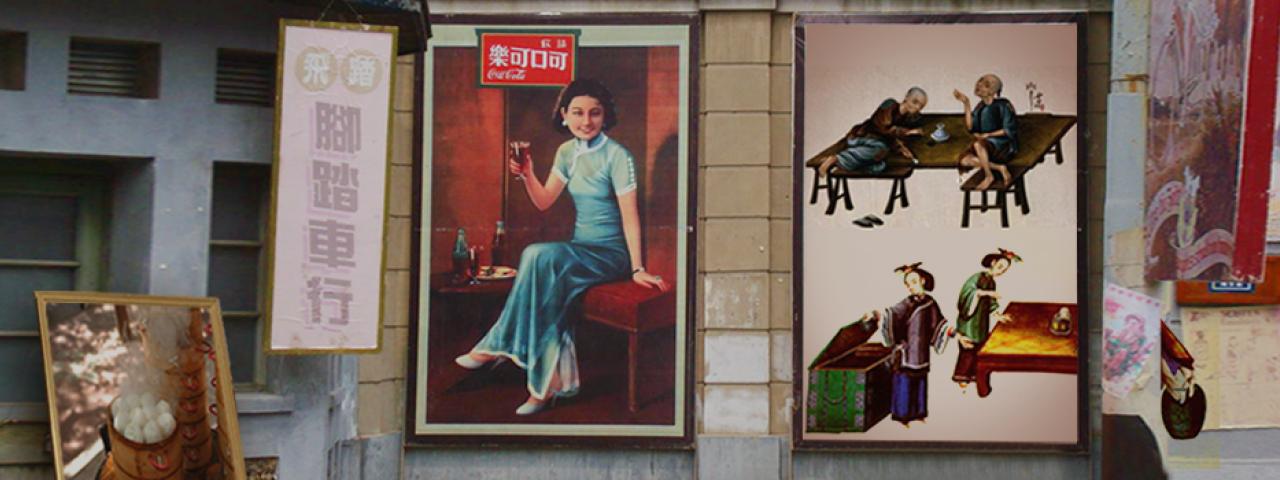
The Gazette sits down with Professor Qian Zhu, a historian and GPS Fellow, who joined NYU Shanghai this spring, to talk about her research interests and upcoming January term course “China for Sale:” Drugs, Food, Travel and Advertising in Modern China.
Where were you before joining us?
I’m actually an NYU alum, with a PhD in History. I graduated in 2011 and started my first job as an assistant professor at Wabash College, a small all-male school in Crawfordsville, Indiana. I taught there for 4 years before coming to NYU Shanghai for the GPS fellowship and to finish my book.
What are some of your research interests?
Chinese History as part of the Republican Era. I’m interested in the cultural politics and leftism from the 1920-1936. I’m interested in left-wing writers, filmmakers and intellectuals of that time, and I am writing a book called Producing Modern Life in China: Democracy and the Everyday, 1920-1936
What drew you to Shanghai?
Shanghai is perfect, being the base for left-wing intellectual activists, and Shanghai Library is my main library, with 90% of my archives as a historian coming from there. Also the dynamic academic team at GPS--colleagues and I work together on workshops and presentations, and even write papers together. They’ve read chapters of my book and have given me great feedback and suggestions. Joanna Waley Cohen was my professor at NYU--I took several of her courses and was her TA. Being part of the NYU community again is wonderful.
What is your J-term class like?
The course covers several themes: drugs, food, advertising and travel. We start by looking at the tradition of opium plantations and opium smoking in Britain and China as well as opium trade and the Opium War in the 1840s. What people don’t often realize is that opium was widely used for recreation and medicinally as painkillers. We then will look at Chinese food in America and Chinese food in global China. We will explore how Chinese cuisine culture actually influenced the transnational Chinese identity. We also examine travel and advertisement from the early 20th century, to see how tourism and traveling become popularized.
How then was travel and tourism popularized?
It happened first for the elite and leisure class, later on taken over by young revolutionaries who adventurously explore the west and different places all over China. I try to link the travelogues and tourism with a sense of China as a nation and also Chinese history as anti-imperialism and anti-Japanese War. Tourism as an industry related to capitalism, was something that the class of leaders and elite enjoyed. There were actually a lot of travel agents in Shanghai to help the elite, with the first Chinese travel agency established in 1921--assisting tourists and young educated elites going abroad to study.
What do you teach students about advertising?
The last part of the course will examine advertising and the globalization of consumption.
Students will see old ads from Shanghai’s 1920s--think cigarette, cigars, soap, and cosmetics ads especially. I compare those old cigarette ads with contemporary ads that now have warning labels whereas the old style romanticized the glamor of smoking. Advertising throughout different historical times may use the same exact commodity but have the power to show them in complete opposite or competing descriptions.
I want them to understand the psychology of how through the advertising industry our society has become self-producing consumers. I want students to have the historical context of consumerism as a social behavior psychologically created through the impact of advertising.
What are you new expectations for teaching this course in Shanghai?
Several students emailed me with why they wanted to take this course and how it might help with their major in Econ and Business. I hope they can use this course as a historical, cultural and social text to help them understand the economic system better—in their majors they’ll be looking at data, modules and mathematics, but this course can show them how those are broken down into daily life. I think this is the charm of a liberal arts education: you receive very diverse and comprehensive views that increase awareness of human life, culture and society. I’m hoping they will walk away with a better understanding of Shanghai, and knowledge that will guide them through their business endeavors if they plan to stay here as entrepreneurs.

